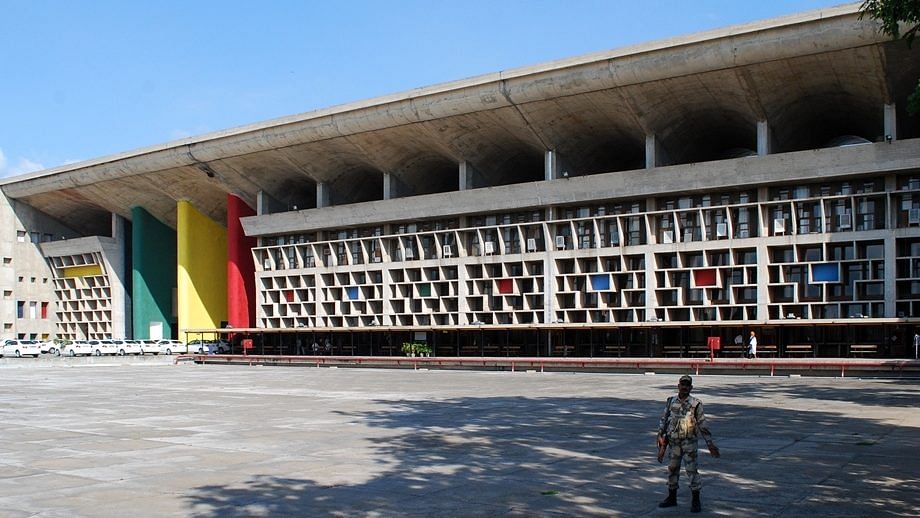Judges refer to “promiscuity”, “adventurism”, and “experimentation in sexual encounters”, top lawyers say victim’s character cannot be the subject of gang rape trial.
A bail order by the Punjab and Haryana High Court has shocked legal circles for its rape apologism, and victim shaming.
The 12-page order, delivered by justices Mahesh Grover and Raj Shekhar Attri on 13 September 2017, granted bail to three men who were convicted by a trial court in Sonepat for repeatedly gang raping and criminally intimidating a fellow university student.
The order has begun to make the rounds of social media via a change.org petition created by students of the O.P. Jindal University.
The trial court had sentenced two persons, Hardik Sikri and Karan Chhabra, to 20 years in jail, while the third man, Vikas Garg, received a seven-year sentence. The three were law students at the private university in Haryana, who raped their fellow student on campus in 2013.
High court’s controversial observations
But the high court judges’ order is riddled with phrases that end up questioning the character of the victim, rather than the accusation of gang rape itself.
“The accused are young and there was no gut wrenching violence which normally accompanies such situations,” the order states, while suspending the sentence of the convicts till their appeal is decided.
“It would be a travesty if these young minds are confined to jail for an inordinate long period which would deprive them of their education, opportunity to redeem themselves and be a part of the society as normal beings.”
The order terms the victim’s experience of repeated sexual assault over two years as a “tragedy of sorts”, which has driven “four young lives and equal number of families into an abyss”.
It further states: “The entire crass sequence actually is reflective of a degenerative mindset of the youth breeding denigrating relationships mired in drugs, alcohol, casual sexual escapades and a promiscuous and voyeuristic world.”
The judges make other references to “promiscuity”, “adventurism”, and “experimentation in sexual encounters” of the victim.
They state: “The testimony of the victim does offer an alternate story of casual relationship with her friends, acquaintances, adventurism, and experimentation in sexual encounters and these factors would therefore, offer a compelling reasons to consider the prayer for suspension of sentence favourably particularly when the accused themselves are young and the narrative does not throw up gut wrenching violence, that normally precede or accompany such incidents. ….but a careful examination of her statement again offers an alternate conclusion of misadventure stemming from a promiscuous attitude and a voyeuristic mind.”
They also question why the victim did not “reveal her mental state to either the authorities in the college or to her parents or her friends”, despite being in a “promiscuous relationship” and having “sexual encounters” with the “three accused persons over a period of time”.
In complete contrast, the trial court verdict had noted that the victim was “traumatised and was trying to come to terms with the incidents” to explain the delay in the reporting of the incident.
In the last line of the order, though, the high court judges state that their observations should not be construed to be an expression on the merits of the case.
‘Victim’s character cannot be the subject of a rape trial’
Legal experts have criticised the order for “victim shaming”.
Noted lawyer Vrinda Grover said “immoral or otherwise”, the character of the victim cannot be the subject matter of a rape trial.
“The observations are extraneous, as the court is actually judging the woman and not the crime that has been complained of. It is a flawed reading of the law, and as studies indicate, not more than 30% cases that involve sexual assault have accompanying signs of physical abuse,” she said.
Prominent advocate Karuna Nundy, who deals with gender issues, said, “A woman’s right to sexual autonomy means even if the survivor was sexually promiscuous or has been a sex worker in the past, it has zero bearing on whether a rape has been committed on her.”
Nundy added that the order must be challenged before the apex court, since lower courts could treat the observations, as binding even when they have no legal significance.
However, Vinod Ghai advocate for one of the accused, appreciated the court order. He told ThePrint that “this was the best order that the court could give”. “The boys should receive counselling instead of a jail sentence,” he said.
Read the full judgement here:
